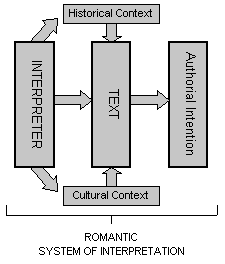It is at once ridiculous and absolutely fitting that Richter was an originalist (i.e., a believer in the original intent of the composer) in his views on music:
Following an absolutely frightful concert that I gave at the Fetes
Musicales de Touraine, when I played eight of Liszt’s Transcendental
Studies, and a recital in Japan, where I took fright even before launching
into Beethoven’s Op. 106 Sonata, I made up my mind never again to play
without a score.It any case, what’s the point of cluttering up your brain when there are far
better things to do? It’s bad for your health, and it also smacks of vanity.
True, it’s not as easy to retain the same degree of freedom with a score
open in front of you – it doesn’t work straight away and requires a lot of
practice – but now that I’ve got used to it, I find that it has lots of
advantages. In the first place, I’ve never made any distinction between
chamber music and music written for a solo performer. But one always plays
chamber music with a score; why should one have to perform without one as a
soloist? In the second place, it’s easy enough to memorize a Haydn sonata,
but I prefer to play twenty while reading the music, rather than limiting
myself to two performed from memory. As for contemporary music, there are
only a few exceptional artists who are able to memorize a piece by Webern,
or Hindemith’s Ludus tonalis, but it’s a waste of time and effort. It’s not
*practical*. Moreover, even if the element of danger and risk aren’t totally
foreign to music, you feel more secure and can concentrate better if you’ve
got the score in front of you. Finally, and above all, it’s more honest to
play like this: you’ve got how it has to be in front of you and you play
exactly what’s written. The interpreter is a mirror, and performing music
doesn’t mean contaminating the piece with your own personality, it consists
in performing *all* the music, nothing more and nothing less. Who could ever
remember *all* the performance markings indicated by the composer? Failing
that, performers start to ‘interpret’, and it’s that that I’m against.By freeing the brain of the useless task of memorizing the music, you can
also stop inflicting the same endlessly repeated programmes on audiences –
and on yourself.(from Bruno Monsaingeon, Sviatoslav Richter: Notebooks and Conversations, tr. Stewart Spencer)
This also makes him a Romantic Hermeneut (diagram c/o this link):

Except without those messy contexts:
The interpreter is really an executant, carrying out the composer’s
intentions to the letter. He doesn’t add anything that isn’t already in the
work. If he’s talented, he allows us to glimpse the truth of the work that
is in itself a thing of genius and that is reflected in him. He shouldn’t
dominate the music, but should dissolve into it. I don’t think that my way
of playing has ever changed. Or if it has, I didn’t notice, Perhaps I simply
started to play with greater freedom as I threw off the shackles of
existence and rejected the superfluous and all that distracts us from the
essential. It is by shutting myself away that I’ve found freedom.I might have had doubts about the extent to which I managed to play what I
intended, but from the beginning I was always certain that, for each work,
it was in this way, and no other, that it had to be played. Why? It’s very
simple: because I looked closely at the score. That’s all that’s required to
reflect what it contains.Kurt Sanderling once said of me: “Not only can he play well, he can also
read music.” That wasn’t such a bad way of putting it.
This is, of course, insane, but who am I to question the ethos given the results? Likewise with Sun Ra and Anthony Braxton, two of the more articulate eccentric musical wonders of the age.